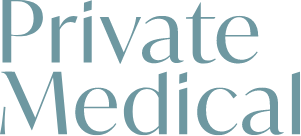
A Medical Dispatch for Well Beings
Volume 5, Number 4 | July 2023
Dear Private Medical Members,
I’m not sure about you, but it seems like AI and longevity are twin movements that have simultaneously reached a peak in their respective hype cycles. While artificial intelligence is moving at a breakneck pace, its application in healthcare is still nascent. In our field, we don’t move fast and break things; we move slow and avoid harming people. That said, there are impressive, incremental gains in how AI is slowly infusing itself into the medical system. As the promise of AI in the medical field unfolds, we must temper our excitement by remembering to proportion our beliefs to the evidence — and the evidence so far is scant.
As AI innovation continues to flourish, longevity science experiences a remarkable boom, transforming into a significantly lucrative industry. Our social media feeds are flooded with products, services, and podcasting gurus peddling imprecise potions and protocols as completely settled dispositive science. Whenever in doubt, ask, “What does the science say?” More often than not, it says very little — and everyone here at Private Medical is rigorous in asking this question before making any recommendations to our members. We are not motivated by selling tonics, rather we are methodically curious about the risks, the benefits, and the trade-offs of any intervention and proactive about developing a level-headed point of view on the latest longevity research.
As we sift through the hype, there is a clear signal in the longevity science noise. The evidence points to a few not-so-radical pillars for achieving a long and healthy life: fostering strong social connections, avoiding processed foods, prioritizing natural sleep patterns, and engaging in regular exercise. Can AI contribute to our advancement in each of these areas? On this question we are cautiously optimistic.
In this edition, we continue to dive into AI with an exploration from our Innovation Council on how these large language models will contribute to primary care and preventative medicine. Dr. Natalie Walsh offers the lifestyle perspective, with the state of AI in optimizing fitness, nutrition, sleep, relationships, and more.
We also feature our April episode of the Inside Medicine podcast in which Seed founder Raja Dhir discusses emerging data about the microbiome that could impact preventative medicine. Finally, you’ll meet four of Private Medical’s nurses, get pediatric insights throughout the issue, and hear this summer’s guidance on infectious diseases.
If you have any feedback, questions or referrals, please email me [email protected] and I will get back to you promptly.

The Wellness Field Is Using AI to Optimize Nutrition, Fitness, and More
Dr. Natalie Walsh discusses AI’s potential applications in lifestyle medicine.

Navigating the Microbiome for Optimal Gut Health and More
Each edition of our newsletter features exclusive interviews with experts from the Private Medical community, providing valuable insights and answers to our pressing health questions. Last season on our podcast, we spoke with Raja Dhir, co-founder and co-CEO of Seed Health, a microbiome science company. Dhir dove into the emerging data about the microbiome that could impact preventative medicine, the parallels between the guts of infants and centenarians, and the benefits of having a diverse diet.
Tune into his conversation with Private Medical’s Dr. Natalie Walsh and Dr. Jordan Shlain on the Inside Medicine podcast, or read a summary of the discussion below.

AI Is Here — How Will it Impact Medicine?
Doctors on our Innovation Council discuss where AI can add value in medicine in the next six months and beyond.

Mid-Summer Infections to Stay Aware Of
Our infectious disease expert, Dr. Geemee Chung, shares the most recent vaccine guidance.

